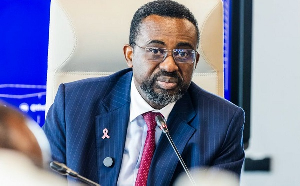A World Bank report on infrastructure says government’s inability to muster the political will to withdraw subsidies on utility tariffs is the cause of the low infrastructure development in the country.
While commending government for improving the road sector, the report also criticized it for not doing enough to improve electricity, water and sanitation infrastructure across the country.
Presenting the report in a Country Economic Memorandum at a WB Development Dialogue Series in Accra, Zeljko Bogetic of the Bank observed that the lack of infrastructure development accounts for the high cost of doing business in the country.
The report as presented by Mr Bogetic shows that much has not been done to bridge the increasing inequality in infrastructural distribution in the country. Whilst naturally endowed regions keep developing in terms of infrastructure, others without natural endowments particularly the three northern regions are lagging behind.
Mr Bogetic said infrastructure such as electricity and water & sanitation needs urgent attention. He therefore called on government to double expenditure on infrastructural development to reduce cost of production in the country.
Commenting on the report, the Deputy Governor of the Bank of Ghana Dr Mahamadu Bawumia said the subsidies on tariffs are too much for government to bear. He hinted that with strong regulation, the private sector will be allowed to participate in determining utility tariffs.
On telecommunication where the report criticized Ghana Telecom (GT) for providing poor services, Dr Bawumia noted that the company would be privatized by close of this year. He also said negotiations on privatization of WESTEL are on-going.
The Deputy Governor, who agreed with the WB report, said the inability of institutions to manage garbage is the cause of the perennial out-break of certain diseases.
Participants at the presentation of the report called for a reduction in the size of government to avoid spending meager resources on too many spokespersons. Some of the participants asked government to explore other sources of energy rather than relying solely on hydro.
By Albert FUTUKPOR (Jayee Student Intern)
General News of Monday, 17 September 2007
Source: dailyExpress












